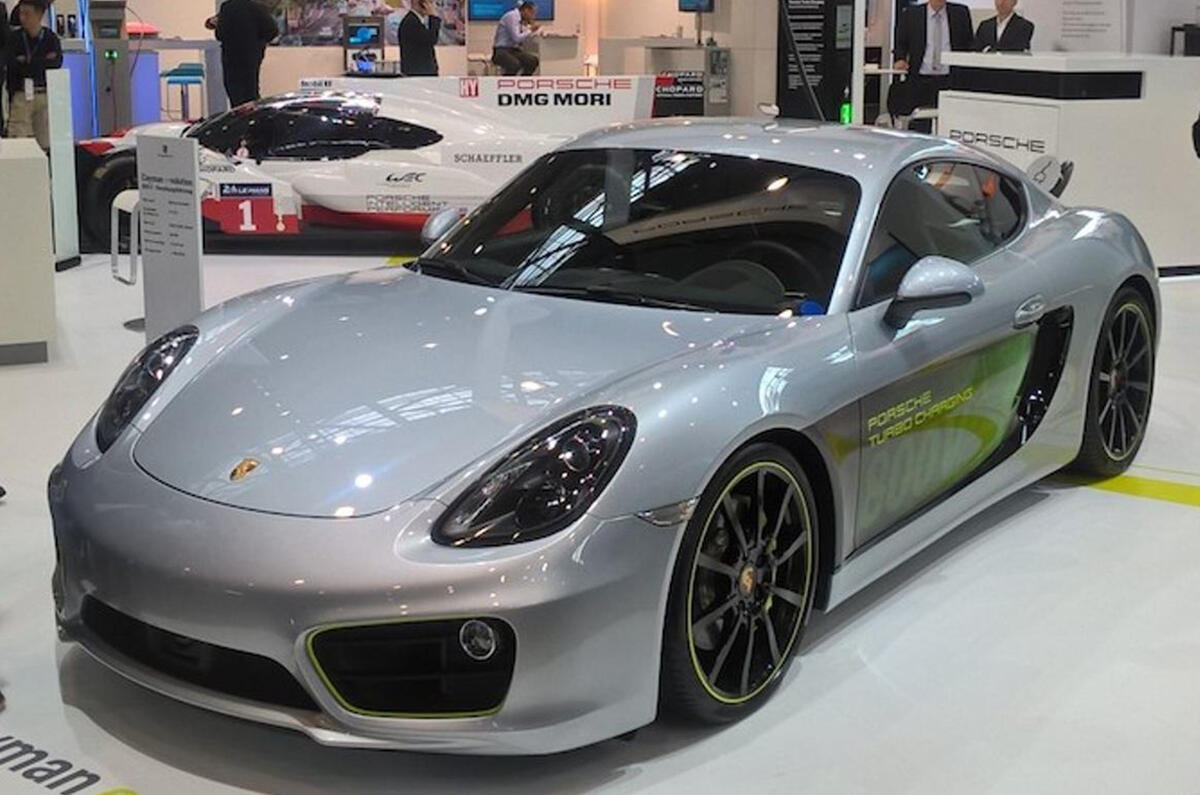Porsche has created an all-electric Cayman, named Cayman e-volution, which has been on display at the Electric Vehicle Symposium in its home town of Stuttgart.
The one-off Cayman was first developed back in 2015, but has been updated with Porsche's Turbo Charging system. Its initial creation was intended to show how electric cars can still offer sportiness, despite dynamic disadvantages such as increased weight.
The Cayman e-volution has a range of around 120 miles and can reach 62mph in 3.3sec – 1.1sec quicker than the current range-topping 2.5-litre 718 Cayman S, with the quick-shifting PDK gearbox. It's limited to 120mph, though, and has four-wheel drive, and a 38kWh capacity in its lithium-ion battery pack. It has a range of around 120 miles.
Porsche says the car is a hint at things to come and that it offers a flavour of what to expect from its first production electric vehicle, the Mission E. That car will have four doors, however, and a much larger range of around 310 miles.
What the Cayman e-volution does showcase, however, is Porsche’s new Turbo Charging accumulator fast-charging system, which Porsche claims can charge at a capacity of up to 320kW per vehicle. This will be part of a Europe-wide charger network that Porsche is working on with Audi, BMW, Daimler and Ford.
The Cayman e-volution will never reach series production, Porsche insists, so the next electric offering from Porsche will be the Mission E, which will land in 2019. Following that, the brand is likely to introduce more electrified and full-electric variants of its models, with solid-state batteries giving greater range, efficiency and improved charging times over standard liquid batteries. Porsche has yet to disclose when these variants will be released.
Read more:
2016 Porsche 718 Cayman S review
Porsche Mission E seen with production body for first time
BMW, Daimler, Ford and VW plan Europe-wide EV fast-charge network
Electric Porsche 911 and Boxster to use solid-state batteries




Join the debate
Add your comment
But how will it sound?!
I for one am ready to embrace the electric future however they have to make those cars loud, there are solutions for this (eg. https://youtu.be/jQktc7T0pUs), it kinda sounds like a differential whine but atleast it sounds a bit exciting). Im aware Porsche is worried about this, as they have a full team dedicated to make the Mission e sound like a sporty car.
percentage wise
porsche 991 gt2 rs vs 997 rs..6:47.3 vs 7:18. we want to see that kind of development phase when it comes to e-vehicles from manufacturers such as porsche ag!
Charge capacity of 320kW per vehicle?
Is this correct? If so it would imply that full charging would take around 6-12 minutes depending on the actual battery capacity. Somehow I doubt that there is a battery yet made that could accommodate this rate of charge without overheating or worse.
The full rate of 320KW is
The full rate of 320KW is most probably only possible on the largest batteries ~100KWh and probably between 20% and 80% of the batteries capacity.
In which case this would allow the battery to go from 20-80% full in around 12 minutes
Tesla Super Chargers currently manage 120KW allowing 20-80% charge in 30 minutes on a P100D